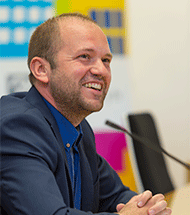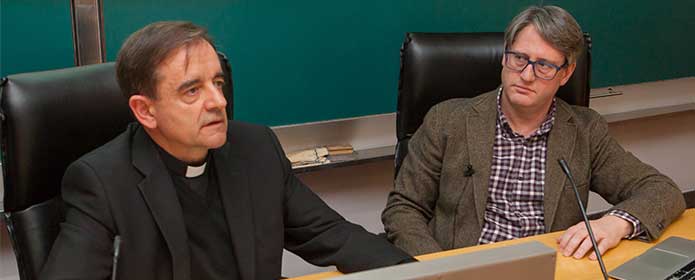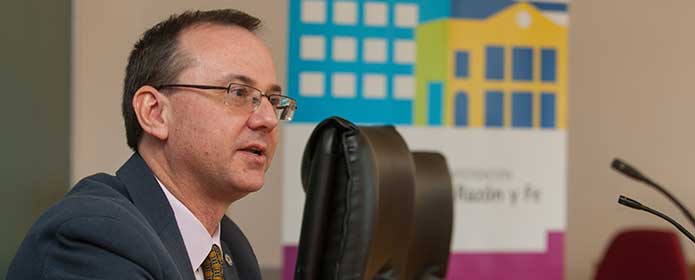An expert reminds us that technology, artificial intelligence and neural activity do not have answers to all of humanity's problems.
Theologian Saša Horvat participated at the University of Navarra in a seminar of group 'Science, Reason and Faith' (CRYF), focused on the future of the human being.

"The neurotechnological turn, which is taking place in our time, does not have the power to provide answers to the questions of the origin of humanity, who we are, why we are here or what is the meaning of our existence". This was stated at the University of Navarra by Saša Horvat, professor of the School of Theology at the University of Zagreb (Croatia). The expert participated in the seminar of the group 'Science, Reason and Faith' (CRYF) in April focused on 'The future of the human being: neuroscientific and philosophical perspectives'.
Professor Horvat pointed out that currently the future of humanity is directly related to the fictional vision of movies and series, which in their scripts provide a sure image of what the future will look like. He emphasized that the common thread in all of them is the relationship of human beings with technology and how neuroscientific motives dominate all dimensions of human life. "How and why did we come to imagine that technology, artificial intelligence and neural activity will provide answers to all human problems, whether subjective or objective in nature?" he questioned.
The expert affirmed that, although it is possible for technology to provide answers to questions that fall within the fields of medicine or ecology, "understanding the essence of the human being on the basis that it is formed by the essence of technology is not the original and authentic way in which man has understood himself", and therefore it is not possible, if what concerns us is the "essence of the human being and what makes us human".
During the lecture, Professor Horvat answered the question of how to change our imagination about the future of humanity, so deeply rooted in the current pace of technological progress. He briefly expressed the neuroscientific and philosophical ways of understanding what it means to be human and what the essence of technology consists of. "There is no wrong or true idea of the future of humanity, but a misunderstanding of what it is to be human," he said.
He also said that perhaps we are so immersed in technology that we think that the essence of the human being can only be mediated by the essence of technology. However, he was positive in stating that in this danger lies a true salvation for humanity: "If we manage to establish a free relationship with technology, something that is not happening right now, perhaps the truly important questions will return with all their force. Perhaps it is time to remember the words of the German philosopher Martin Heidegger, who said something we have yet to understand: 'Only a God can save us.



